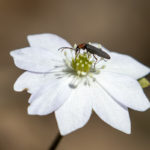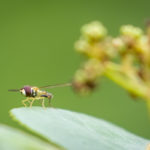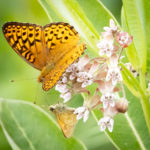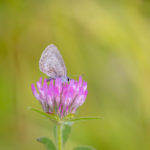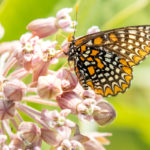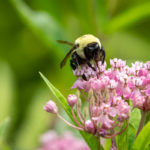Native Pollinators: Natural History, Ecology, & Conservation
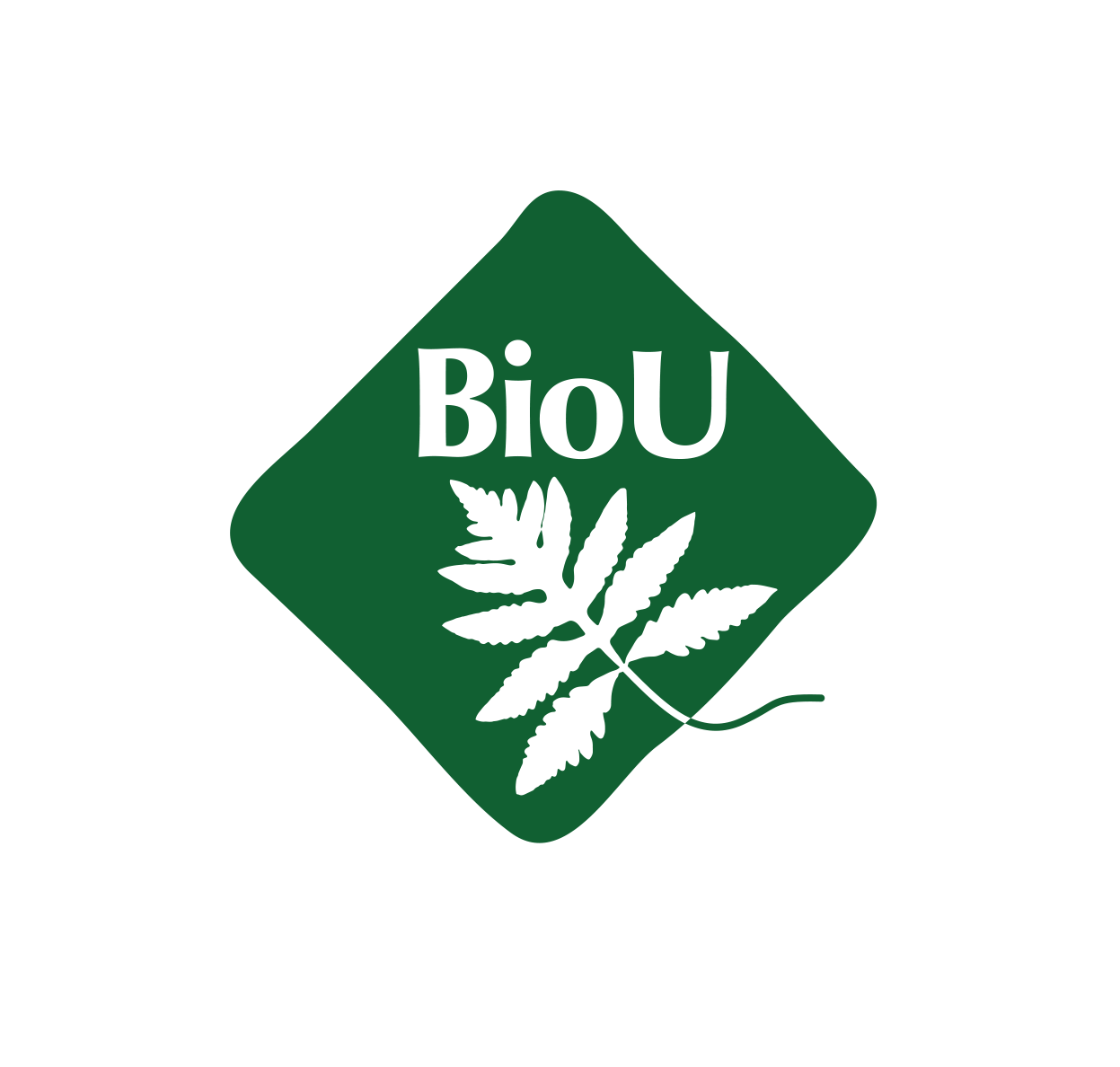
Instructor: Jason Mazurowski
August 24 - 25, 2024 | $285
Course size: 12 students
Financial support available (contact us)
W
hen it comes to pollination, honeybees get all the attention, but most of the credit belongs to a diverse group of organisms that call New England home. There have been over 350 species of wild bees identified in Vermont to date, and they – along with myriad moths, butterflies, wasps, beetles, flies, and birds – are responsible for pollinating ~80% of flowering plants and ~66% of food crops. Recent reports of declining insect populations have spurred a worldwide movement to restore habitat, promote biodiversity, and integrate pollinator conservation into the human landscape. At the same time, the northeast is facing a critical shortage of native plant stock, threatening to stall many state and local restoration efforts.
This course will provide an introduction to pollination ecology, focusing on the relationships between our native pollinators and their environment. Topics will include ecology, natural history, conservation, field methods, and an overview of native plant propagation and habitat restoration. Students will leave this course with a basic understanding of New England’s native pollinators, the plants that support them, and the tools needed for their conservation.
Course Goals & Objectives
- Become familiar with New England's native pollinators and their basic biology and ecology.
- Explore the diversity of New England’s native bees.
- Discuss the differences between domesticated honeybees and native pollinators.
- Develop an understanding of the ecological, economic, and social benefits provided by pollinators.
- Learn basic field identification skills.
- Practice standard field methods.
- Discuss the current state of pollinator populations, and implications for the future.
- Learn strategies for pollinator conservation such as native plant cultivation, and the establishment and maintenance of pollinator habitat.
About the Instructor
Jason Mazurowski is an ecologist, naturalist, and adjunct instructor at the University of Vermont where he teaches courses in pollination ecology and field science. Much of Jason’s recent work has focused on studying native bee populations, and he is currently establishing a small native plant nursery at his home in Woodbury. In addition to co-instructing a Winter Ecology field course in Maine with author and naturalist Bernd Heinrich, he has experience as a backcountry guide leading dogsled expeditions in the Minnesota’s boundary waters. In the summer, he can usually be found biking, hiking or running through the mountains of northern New England. During winter months, Jason spends much of his time baking bread, backcountry skiing, and writing. Jason earned bachelor’s degrees in geology and environmental studies from SUNY Buffalo, and a master’s degree from the University of Vermont’s Field Naturalist Program.
Physical Requirements
Participants must be able to walk 2-3 miles over the course of each day, sometimes off trail over uneven and potentially muddy terrain. Participants should be comfortable outside in potentially hot, muggy, wet, and/or buggy conditions for long periods of time. Please reach out to us if you have any questions about mobility and/or other accessibility needs.
Recommended Reading
Pollinators of Native Plants: Attract, Observe, and Identify Pollinators and Beneficial Insects with Native Plants by Heather Holm: It is the single greatest resource that I know of for pollinator conservation in the Eastern U.S. It is organized by plant species and habitat, full of illustrations, diagrams, and photos geared toward all experience levels. It has a permanent place in my backpack, and I never go into the field without it.
Common Bees of Eastern North America by Olivia Messinger Carril and Joseph S. Wilson: This is the first real field guide to native bees that does not require the use of a microscope. Bees are notoriously difficult to ID in the field and this highly anticipated guide includes keys, photos, range maps and field marks to help make native bee ID more accessible to the general public.
Nature’s Best Hope by Doug Tallamy: While we will spend time discussing each group of native pollinators, the majority of our focus will be on native bees. For a broader look into the other groups of pollinators and their role in biodiversity conservation, Doug Tallamy is the current leading authority on the subject. This book looks at moths and butterflies in particular, and their ecological roles as a primary food source for birds and other wildlife.
Buzz by Thor Hanson: The most engaging book I have ever read about pollinators and pollination. There is a strong focus on biology and natural history, with some amazing insight into our cultural ties to bees.
Bumblebee Economics by Bernd Heinrich: Bumblebees are a fascinating and charismatic genus, however, we will only scratch the surface on their fascinating biology and life history. For those who are left wanting to learn more, Bernd Heinrich’s groundbreaking account of their ecology and bioenergetics is the best resource out there.
Meals
Participants should bring their own lunches and snacks.
Timing
Course begins 9 AM on Saturday at North Branch Nature Center and concludes by 5 pm. Course begins on Sunday at a time and location of the instructors' choosing and concludes by 5 PM on Sunday.
Academic Credit / Professional Development
This course may qualify for 1 graduate-level credit for an additional $200 course fee. All BioU courses may be accredited by Castleton University. Participants interested in receiving credit must contact us at one month in advance so we have time to arrange course accreditation.
It is the student’s responsibility to ensure that home institutions will accept the credit. Participants pursuing academic credit will be required to complete an additional assignment above and beyond the course hours, including literature review, reflective writing, or a field-based project.
This course qualifies for 20 hours of professional development hours and continuing education units. Certificates of completion are provided at the conclusion of the course.
Cancellation Policy
While we realize that unexpected circumstances arise that are out of our control, North Branch Nature Center cannot guarantee refunds for registrations cancelled within 30 days of the course. If a cancellation occurs within this window, NBNC will attempt to fill the space from our wait list and provide a full refund. If the course needs to be cancelled by NBNC, we will provide a full refund.
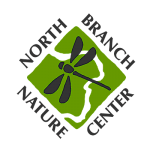
713 Elm Street
Montpelier, Vermont 05602
(802) 229-6206
Hours: Center Open Monday-Friday 9-4
Trails Open 24/7
